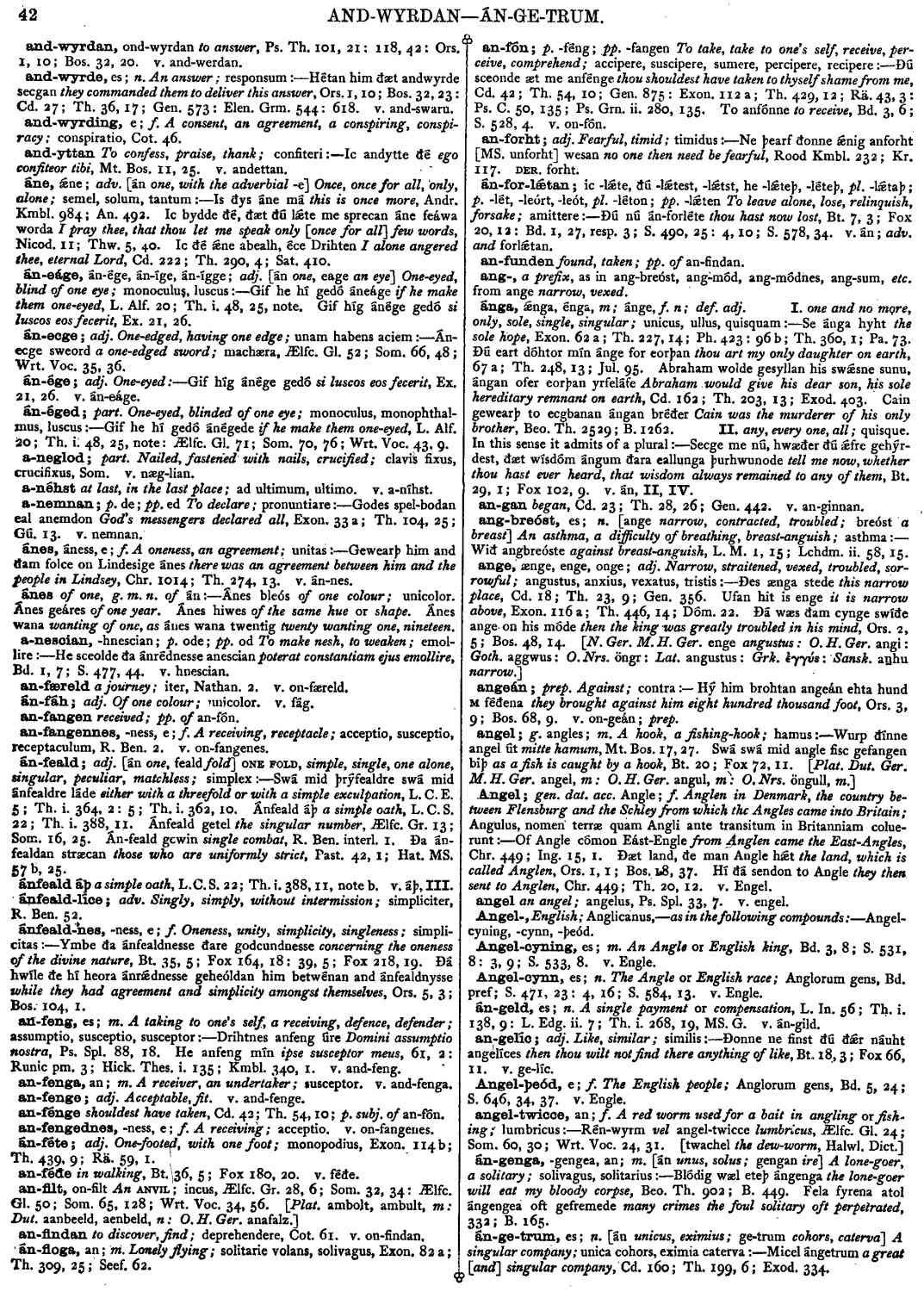ánga
- noun [ masculine ]
-
Se ánga hyht
the sole hope,
- Exon. 62a; Th. 227, 14 ;
- Ph. 423: 96b ;
- Th. 360, 1 ;
- Pa. 73 .
-
Ðú eart dóhtor mín ánge for eorþan
thou art my only daughter on earth,
- 67a; Th. 248, 13 ;
- Jul. 95 .
-
Abraham wolde gesyllan his swǽsne sunu, ángan ofer eorþan yrfeláfe
Abraham would give his dear son, his sole hereditary remnant on earth,
- Cd. 162; Th. 203, 13 ;
- Exod. 403 .
-
Cain gewearþ to ecgbanan ángan breðer
Cain was the murderer of his only brother,
- Beo. Th. 2529 ;
- B. 1262 .
-
Secge me nú hwæðer ðú ǽfre gehýrdest, ðæt wisdom ángum ðara eallunga þurhwunode
tell me now, whether thou hast ever heard, that wisdom always remained to any of them.
- Bt. 29, 1; Fox 102, 9 .
Bosworth, Joseph. “ánga.” In An Anglo-Saxon Dictionary Online, edited by Thomas Northcote Toller, Christ Sean, and Ondřej Tichy. Prague: Faculty of Arts, Charles University, 2014. https://bosworthtoller.com/1805.
Checked: 1